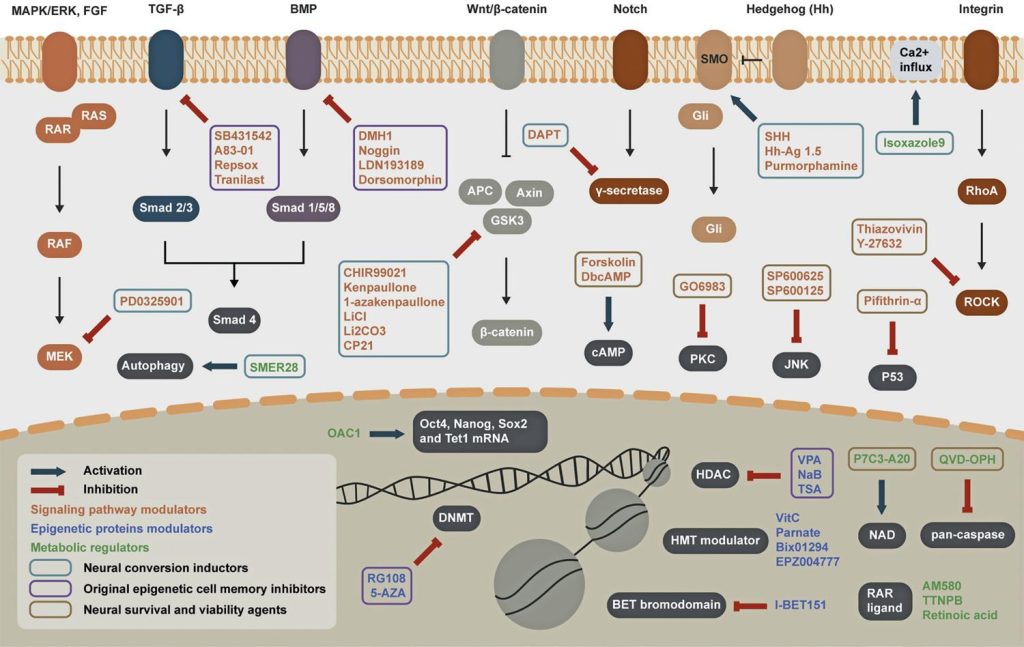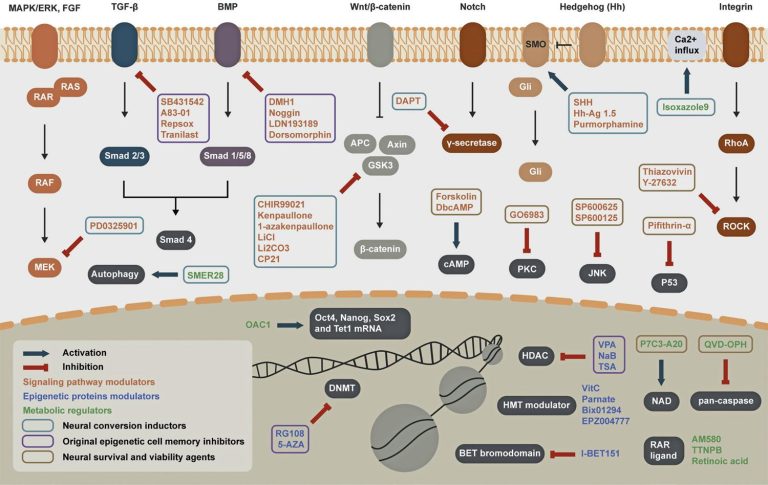einstein (São Paulo). 13/Nov/2024;22:eRW0423.
Chemical transdifferentiation of somatic cells to neural cells: a systematic review
DOI: 10.31744/einstein_journal/2024RW0423
ABSTRACT
Introduction
Transdifferentiation is the conversion of a specific somatic cell into another cell type, bypassing a transient pluripotent state. This implies a faster method to generate cells of interest with the additional benefit of reduced tumorigenic risk for clinical use.
Objective
We describe protocols that use small molecules as direct conversion inducers, without the need for exogenous factors, to evaluate the potential of cell transdifferentiation for pharmacological and clinical applications.
Methods
In this systematic review, using PRISMA guidelines, we conducted a personalized search strategy in four databases (PubMed, Scopus, Embase, and Web Of Science), looking for experimental works that used exclusively small molecules for transdifferentiation of non-neural cell types into neural lineage cells.
Results
We explored the main biological mechanisms involved in direct cell conversion induced by different small molecules used in 33 experimental in vitro and in vitro transdifferentiation protocols. We also summarize the main characteristics of these protocols, such as the chemical cocktails used, time for transdifferentiation, and conversion efficiency.
Conclusion
Small molecules-based protocols for neuronal transdifferentiation are reasonably safe, economical, accessible, and are a promising alternative for future use in regenerative medicine and pharmacology.
123



